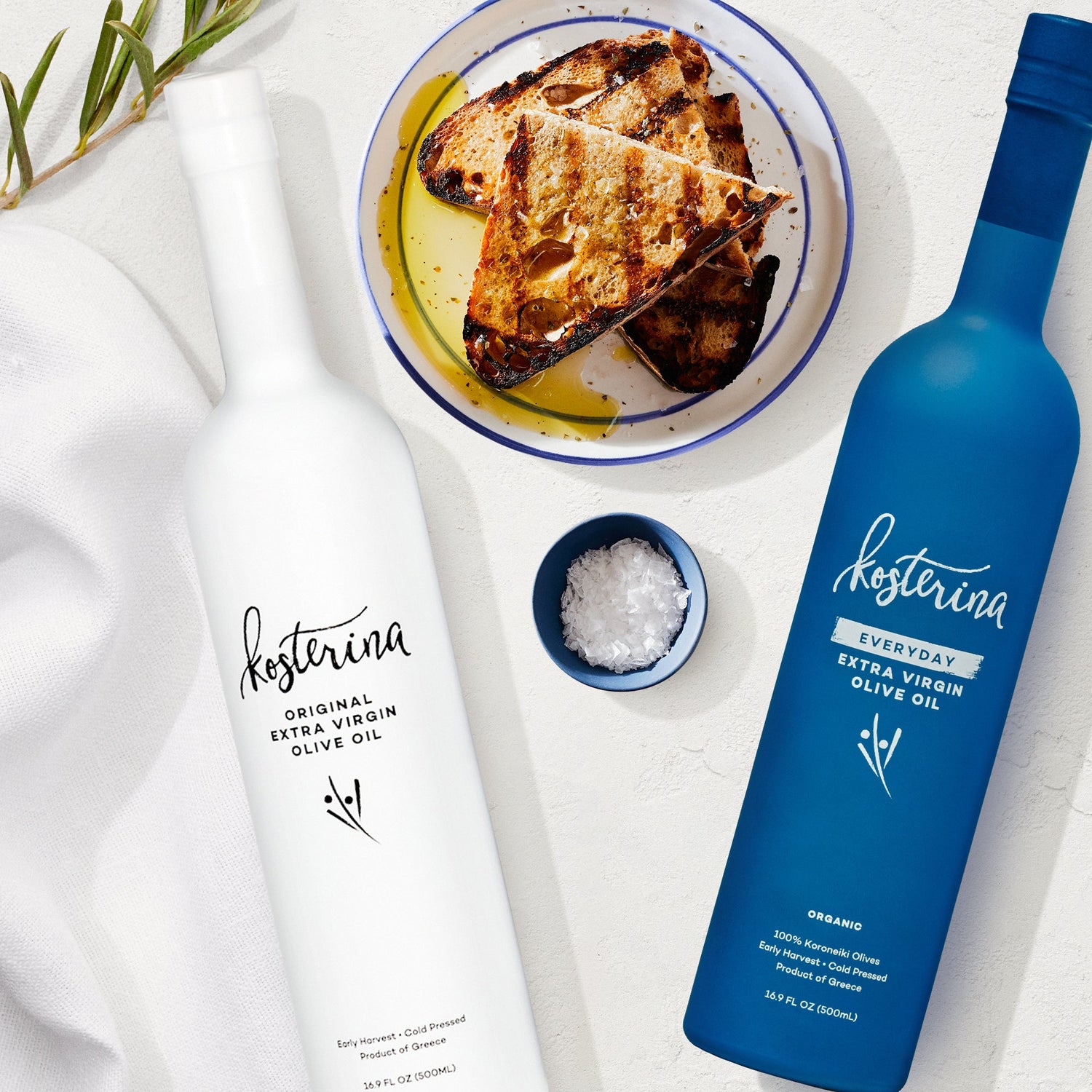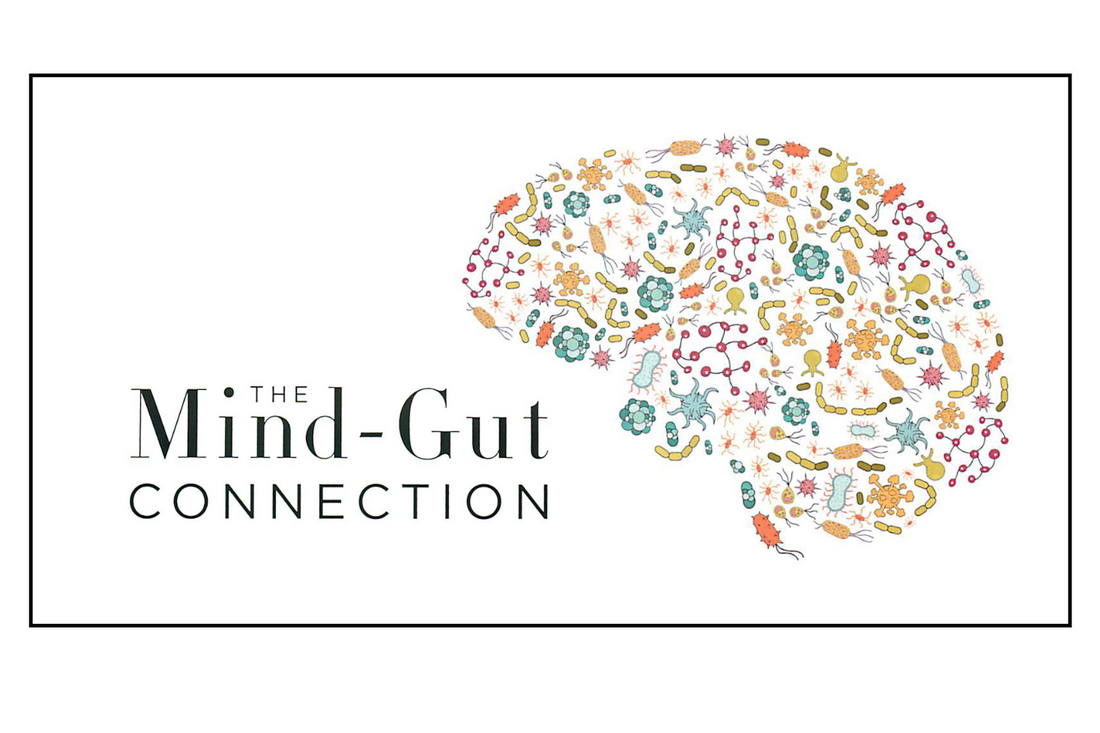Your brain and your gut are in constant communication - whether it is to decide how to digest the food you had last night, or to influence emotions like happiness (95% of the body’s serotonin is stored in the gut). Emeran Mayer, M.D. explores the fascinating mechanics behind the signals that gut microbes send to the brain and what that might reveal about our physical and emotional states. In his book, The Mind-Gut Connection, Dr. Mayer provides an overview of this complex language, explains what this means in terms of emotions, and explores what we can do to optimize it. Spoiler alert - the Mediterranean lifestyle has an honorary mention!
Dr. Mayer first describes how the complex language between the gut and the brain works, dubbing the sophisticated signaling as “microbe-speak”. Those gut feelings that tell us we are nervous or anxious do not actually stay in the rumblings of our tummies. Scientists have recently discovered that gut microbes are behind the interaction that exists through hormones and neurotransmitters. It is amazing to think we are only now forming a clearer understanding of these tiny organisms that have been around for four billion years! Alterations in these micro messengers can trigger immune responses, activate feelings, and influence sleep - and nutrition has much to do with it.
In the second section of his book, Dr. Mayer explores the link between adverse childhood experiences and the gut-brain dialogue. Maternal stress in utero and in early life has a biological impact not only on the child’s brain, but also its gut microbiota. In one study, scientists exposed alarming noises to pregnant rhesus monkeys at random intervals for ten minutes every weekday for six weeks. They found that the babies of these stressed monkey mothers had fewer good gut bacteria and this impacted their gut and brain circuitry for life. Dr. Mayer provides a glimpse of how he has applied new research to treating a range of both physical and mental disorders through an integrative lens. The scientific research continues to suggest that chronic stress makes us more susceptible to external pathogens because the stress signals reduce the thickness of the mucus layer of the colon wall and changes our immune system’s response. Next time you contract a bad stomach bug on vacation after a long, stressful stint at work, that might be why! The fascination of the gut-brain connection does not just end with exploring and alleviating problematic conditions. Exciting, new research is delving into the link between gut sensations, emotions, and intuition.
Dr. Mayer devotes the third part of the book to providing examples of how to improve brain-gut health, starting with food. He describes the brain-gut axis like “a supercomputer - one that can perfectly adjust to the ongoing changes in our internal and external world and that has intricate connections to our immune system, our metabolism, our nervous system, and every other system in our body.” There is tremendous adaptation happening constantly within your gut depending on what you eat. Studies show that a diet high in animal fats and low in fiber reprograms the gut-brain axis. This is due to low grade inflammation in the gut microbiota, which over time impacts the appetite regulation network in the brain’s hypothalamus. Dr. Mayer applauds the Mediterranean diet, specifically calling out the high levels of polyphenols and antioxidants contained in olive oil and their resulting anti-inflammatory effect. Additional factors noted include the benefits of rituals and the social aspect of sharing a meal with family and friends. Dr. Mayer concludes with helpful, realistic tips, empowering his readers to take action towards optimal health and wellbeing. So, what are the key takeaways?
- Include naturally fermented foods to increase gut microbial diversity - say yes to that pickle on the side!
- Practice mindful eating and be aware of serving sizes. It is possible to enjoy everything, in moderation.
- Avoid processed food. There are so many grab and go options that are tempting when we are short on time, but a little meal prep will help with increasing intake of natural food.
- Take good care of prenatal nutrition. Get your baby’s brain/ gut health off to an amazing start.
- Reduce stress and practice mindfulness. Five minutes a day goes a long way.
- Avoid eating when you are stressed, angry, or sad. Treat mealtime as sacred time, and your body will feel better for it.
- Enjoy the social aspect of food. Take a page from the Mediterranean lifestyle playbook and linger over meals with the people in your life.
- Become an expert in listening to your gut feelings. That saying ‘trust your gut’ makes so much more sense now, doesn’t it?
Mayer, E. (2016). The mind-gut connection: How the hidden conversation with our bodies impacts our mood, our choices, and our overall health. Harper Wave. New York, NY.








